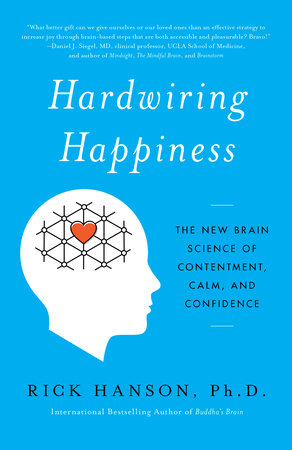How Psychedelics Work: Fire the Conductor, Let the Orchestra Play | Michael Pollan | Big Think
If your ego had a "location" in the brain, it would be the default mode network, where much of your self-critical mind chatter happens. Taking psychedelics down-regulates this brain network. See more...
FULL SUMMARY
If your ego had a "location" in the brain, it would be the default mode network, where much of your self-critical mind chatter happens. Taking psychedelics down-regulates this brain network. Researchers describe the effect of psychedelics as "letting the brain off its leash", or firing the conductor to let the orchestra play. Without the default mode network acting as a dictator, areas of the brain that don't normally interact meet, producing phenomena like hallucinations and synesthesia.
05:24 min
YOU MIGHT ALSO LIKE
CLEAR ALL
BY TOPIC
BY TEACHER
BY TYPE
FILTER

TOPIC
- Psychedelic Journey (39)
- Plant Spirit Medicine (32)
- Altered States (30)
- MDMA (29)
- Ayahuasca (20)
- Depression (20)
- Indigenous Healing Approaches (20)
- PTSD (18)
- Consciousness (15)
- Microdosing (15)
- Trauma Healing (15)
- Brain Health (14)
- DMT (13)
- Religious Experience (13)
- Anxiety (12)
- Science and Spirituality (12)
- Transcendent Experience (12)
- Drug Policy (11)
- Emotional and Mental Health (11)
- Trauma (11)
- Connection with Nature (10)
- Dementia (10)
- Cancer (9)
- Autoimmune Disease (8)
- Ketamine (8)
- Mental Health Challenges (8)
- Chronic Health Conditions (7)
- Memory (7)
- Neuroplasticity (7)
- Psychology (7)
- South American Shamanism (7)
- BIPOC Well-Being (6)
- Interdependence (6)
- Neurodiversity (6)
- Shamanism (6)
- Spiritual Healing (6)
- Buddhism (5)
- Clinical Depression (5)
- Collective Trauma (5)
- Indigenous Rights (5)
- Mind-Body Connection (5)
- Neuropsychology (5)
- Plant-Based Medicine (5)
- Polyvagal Theory (5)
- Synesthesia (5)
- Addiction Recovery (4)
- Alcohol Addiction (4)
- Child’s Trauma (4)
- Chronic Anxiety (4)
- Cognition (4)
- Ego Dissolution (4)
- Illness and Injury (4)
- Inflammation (4)
- Meditation (4)
- Mindfulness (4)
- Racial Healing (4)
- Racial Justice (4)
- Racism (4)
- Romantic Relationships (4)
- Self-Discovery (4)
- Shamanic Healing (4)
- Visions and Hallucinations (4)
- Black Well-Being (3)
- Caregiver Well-Being (3)
- Child’s Emotional Growth (3)
- Death and Dying (3)
- Decision Making (3)
- Diet and Nutrition (3)
- Ecospirituality (3)
- Emotional Intelligence (EQ) (3)
- Empathy (3)
- Fear (3)
- Neoshamanism (3)
- Perception (3)
- Smoking Addiction (3)
- Stress (3)
- Transpersonal Psychology (3)
- Well-Being (3)
- Addiction (2)
- Aging (2)
- Archetypes (2)
- Autism (2)
- Cognitive Psychology (2)
- Compassion (2)
- Connection (2)
- Digital Life (2)
- Disconnection (2)
- Dreamwork (2)
- Dysfunctional Childhood (2)
- Epigenetics (2)
- Habit Formation (2)
- Happiness (2)
- Holotropic Breathwork (2)
- Honoring Emotion (2)
- Imagination and Creativity (2)
- Marriage (2)
- Parenting (2)
- Past Life Regression (2)
- Problem Solving (2)
- Relationship Challenges (2)
- Self-Healing (2)
- Self-Reflection Practices (2)
- Shadow (2)
- Sleep (2)
- Spiritual Crisis (2)
- Tibetan Buddhism (2)
- Wicca (2)
- Willpower (2)
- Yoga (2)
- Attachment Theory (1)
- Awareness (1)
- Belonging (1)
- Biofeedback (1)
- Body Mapping (1)
- Building Character (1)
- Burnout (1)
- Cannabis/CBD (1)
- Changes in Libido (1)
- Child’s Challenging Behavior (1)
- Children’s Well-Being (1)
- Chronic Pain (1)
- Climate Change (1)
- Communication Skills (1)
- Community Healing (1)
- Comparing Belief Traditions (1)
- Compassion Meditation (1)
- Divorce and Breakup (1)
- Embodiment (1)
- Energy Healing (1)
- Environmental Exploitation (1)
- Exercise (1)
- Facing Own Death (1)
- Fellowship and Community (1)
- Finding Meaning (1)
- Friendship (1)
- Genetics (1)
- Guilt (1)
- Healing Approaches (1)
- Healthy Eating (1)
- Herbal Supplementation (1)
- Holism (1)
- Homeopathy (1)
- Human Potential (1)
- Hypnosis (1)
- Ibogaine (1)
- Identity (1)
- Incarceration (1)
- Infidelity (1)
- Inner Life (1)
- Inner Strengths (1)
- Insomnia (1)
- Intimacy (1)
- Kundalini Yoga (1)
- Learning Styles (1)
- Living as an Empath (1)
- Living with Illness (1)
- Love (1)
- Lovingkindness (1)
- Magic (1)
- Magick (1)
- Military to Civilian Re-entry (1)
- Mindfulness Practices (1)
- Mysticism (1)
- Native American Beliefs (1)
- Near-Death Experience (1)
- Nightmares (1)
- Non-Duality (1)
- Other Dimensions and Beings (1)
- Past Lives and Reincarnation (1)
- Physical Health (1)
- Play (1)
- Poetry (1)
- Positive Psychology (1)
- Pregnancy and Childbirth (1)
- Psychoanalysis (1)
- Psychological Approaches (1)
- Racial Discrimination (1)
- Reiki (1)
- Rolfing (1)
- Self-Pressure (1)
- Self-Realization (1)
- Sex (1)
- Shame (1)
- Sleep Disorders (1)
- Social Media Addiction (1)
- Somatic Experiencing (1)
- Spiritual Development (1)
- Spiritual Practices (1)
- Spirituality and Health (1)
- Suffering (1)
- Sustainability (1)
- Talk Therapy (1)
- Telepathy (1)
- Time Management (1)
- Transformation (1)
- Trauma-Informed Therapy (1)
- Unity (1)
- Veteran Well-Being (1)
- Witch (1)
- Witchcraft (1)
- Women’s Well-Being (1)
- Young Adult Well-Being (1)
- Zen Buddhism (1)
FILTER

TEACHER
- Stanislav Grof (6)
- Michael Pollan (5)
- Rick Doblin (5)
- Stephen Porges (5)
- Dennis McKenna (4)
- María Sabina (4)
- Rick Strassman (4)
- Amanda Feilding (3)
- Ann Shulgin (3)
- Daniel Goleman (3)
- David Perlmutter (3)
- Francoise Bourzat (3)
- Graham Hancock (3)
- Natalie Ginsberg (3)
- Ralph Metzner (3)
- Timothy Leary (3)
- Bia Labate (2)
- David Eagleman (2)
- Erin Clabough (2)
- Gabor Maté (2)
- Helen Fisher (2)
- Jill Bolte Taylor (2)
- Lisa Feldman Barrett (2)
- Richard Davidson (2)
- Rick Hanson (2)
- Stan Tatkin (2)
- Stephen Harrod Buhner (2)
- The Dalai Lama (2)
- Alan Watts (1)
- Aldous Huxley (1)
- Andrew Weil (1)
- Anil Seth (1)
- Anna Lembke (1)
- Annie Hopper (1)
- Charles Tart (1)
- Christopher Penczak (1)
- Daniel Gilbert (1)
- Daniel J. Siegel (1)
- Hank Wesselman (1)
- Howard Gardner (1)
- James Fadiman (1)
- Jean Houston (1)
- Jeremy Narby (1)
- Joan Halifax (1)
- Joseph Tafur (1)
- Judith Orloff (1)
- Julieta Casimiro (1)
- Ken Kesey (1)
- Mark Haden (1)
- Martin Seligman (1)
- Matthieu Ricard (1)
- Michio Kaku (1)
- Oliver Sacks (1)
- Paul Stamets (1)
- Peter A. Levine (1)
- Ram Dass (1)
- Robert Jesse (1)
- Rosalind Watts (1)
- Ruby Wax (1)
- Russell Brand (1)
- Sanjay Gupta (1)
- Scott Cunningham (1)
- Terence McKenna (1)
- Thich Nhat Hanh (1)






